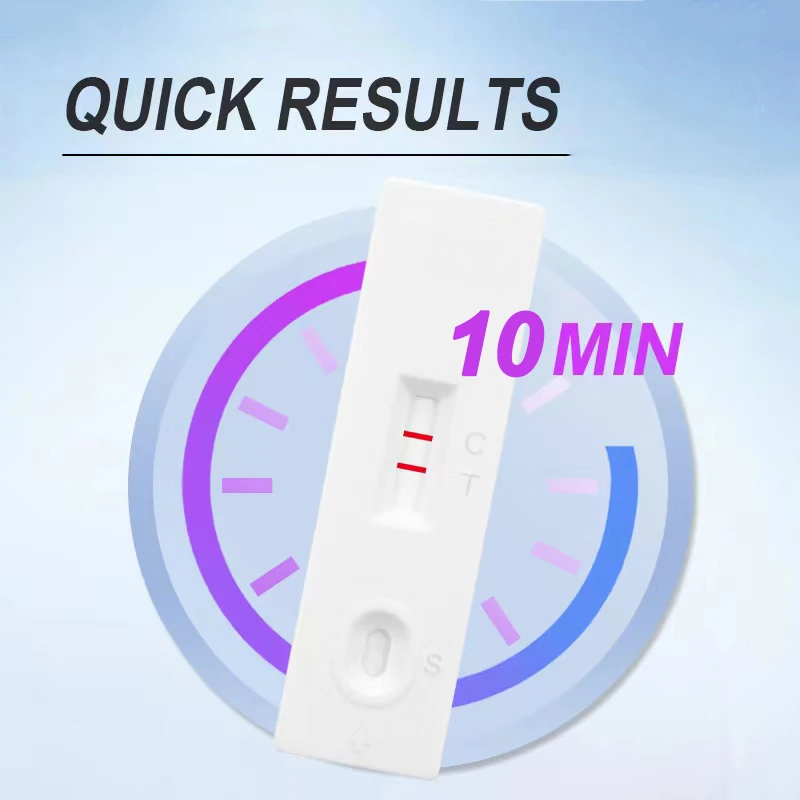Feb . 16, 2025 07:51 Back to list
lh ovulation test strip kit
Unveiling the Future of Diagnostics Understanding the Impact and Evolution of Test Kits
One of the most significant contributions of test kits is their ability to transform the patient experience. These kits provide a user-friendly interface that allows individuals to conduct tests within the comfort of their homes, thereby reducing the need for frequent hospital visits. The instructions are often designed to be simple, requiring minimal prior medical knowledge, which helps demystify complex medical procedures for everyday users. Additionally, the rapid delivery of results minimizes anxiety associated with long waiting periods, facilitating timely medical consultation and intervention. Authoritative Validation and Trustworthiness The trustworthiness of test kits stems from their compliance with stringent regulatory standards set by health authorities like the FDA and CE. Each kit undergoes meticulous evaluation to ensure it meets the safety, efficacy, and quality benchmarks required for market approval. Users are assured of their reliability through certifications, which are prominently displayed, adding a layer of confidence in the results they provide. Moreover, reputable manufacturers often publish peer-reviewed studies and provide transparent data regarding the performance of their products, reinforcing their authority in the healthcare industry. Diverse Applications and Future Directions The applications of test kits extend beyond mere diagnostics; they are vital tools in preventing the spread of diseases, managing chronic conditions, and facilitating personalized medicine. For instance, during the recent global health crises, rapid antigen and antibody tests played crucial roles in controlling the pandemic's spread by enabling widespread, accessible testing. Similarly, DNA test kits offer insights into genetic predispositions, thereby informing personalized healthcare strategies that tailor preventive and therapeutic measures to individual needs. Looking forward, the advent of digital health technologies and machine learning algorithms suggest a future where test kits will become even more integral to proactive health management. The integration of IoT devices and mobile app-based platforms promises to enhance the functionality, accuracy, and scope of these kits, ushering in an era of interconnected health solutions. In conclusion, the evolution of test kits exemplifies the intersection of scientific innovation and practical application in healthcare. As they continue to advance, these tools promise to sustain their pivotal role in enhancing diagnostic capability and patient empowerment. Their journey is not just a testament to technological progress, but also a commitment to improving global health outcomes through accessible and reliable diagnostic solutions.


One of the most significant contributions of test kits is their ability to transform the patient experience. These kits provide a user-friendly interface that allows individuals to conduct tests within the comfort of their homes, thereby reducing the need for frequent hospital visits. The instructions are often designed to be simple, requiring minimal prior medical knowledge, which helps demystify complex medical procedures for everyday users. Additionally, the rapid delivery of results minimizes anxiety associated with long waiting periods, facilitating timely medical consultation and intervention. Authoritative Validation and Trustworthiness The trustworthiness of test kits stems from their compliance with stringent regulatory standards set by health authorities like the FDA and CE. Each kit undergoes meticulous evaluation to ensure it meets the safety, efficacy, and quality benchmarks required for market approval. Users are assured of their reliability through certifications, which are prominently displayed, adding a layer of confidence in the results they provide. Moreover, reputable manufacturers often publish peer-reviewed studies and provide transparent data regarding the performance of their products, reinforcing their authority in the healthcare industry. Diverse Applications and Future Directions The applications of test kits extend beyond mere diagnostics; they are vital tools in preventing the spread of diseases, managing chronic conditions, and facilitating personalized medicine. For instance, during the recent global health crises, rapid antigen and antibody tests played crucial roles in controlling the pandemic's spread by enabling widespread, accessible testing. Similarly, DNA test kits offer insights into genetic predispositions, thereby informing personalized healthcare strategies that tailor preventive and therapeutic measures to individual needs. Looking forward, the advent of digital health technologies and machine learning algorithms suggest a future where test kits will become even more integral to proactive health management. The integration of IoT devices and mobile app-based platforms promises to enhance the functionality, accuracy, and scope of these kits, ushering in an era of interconnected health solutions. In conclusion, the evolution of test kits exemplifies the intersection of scientific innovation and practical application in healthcare. As they continue to advance, these tools promise to sustain their pivotal role in enhancing diagnostic capability and patient empowerment. Their journey is not just a testament to technological progress, but also a commitment to improving global health outcomes through accessible and reliable diagnostic solutions.
Next:
Latest news
-
Highly Accurate hCG Pregnancy Test Strips - 5 Min Results
NewsAug.02,2025
-
Premium Empty ABS Plastic Cassettes: Durable & Lightweight Storage
NewsAug.01,2025
-
Accurate Cocaine (Coc) Rapid Test Kit | Fast & Reliable Detection
NewsJul.31,2025
-
Accurate HCG Pregnancy Test Strips | Fast Home Use Kit
NewsJul.31,2025
-
Reliable Early Pregnancy Test Kit Supplier - Multi Plastic Cassette Options
NewsJul.30,2025
-
Transferrin Rapid Test Cassette – Reliable Tumor Marker Detection
NewsJul.29,2025

